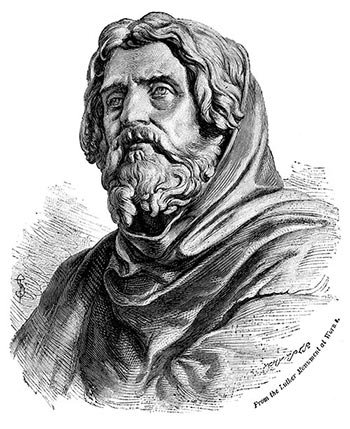Restoration to 1500

Peter Waldo
It has become customary amongst Protestant churches to date the beginning of a more Biblical Christianity from the Reformation in the 16th century, when Martin Luther published his Ninety-five Theses on October 31st, 1517.
Though the Reformation was undoubtedly an outstanding milestone in the history of the church, there were notable restorationists, men and movements, before the 16th century and far more afterwards, in both numbers and effectiveness. The Reformation was a predominantly a challenge to the Catholic Church and, to papal authority. It arose from what were perceived to be errors, abuses, and discrepancies within the Catholic Church. The Reformation triggered the start of Protestantism which created a new way of following Jesus Christ which was free from many unbiblical doctrines and man-made rules and traditions.
This section concentrates on the personalities and histories of pre-reformation believers who resisted contemporary trends of the perversion of doctrines and practices in the churches of their day. They represent thousands of true saints who were faithful to God’s word and resistant to the ungodly impositions that were gradually introduced over the centuries after the original apostles had departed from life on the earth. The majority of them were ostracised, persecuted and martyred.
This is a provisional list of restoration leaders from 100 A.D. to 1500. A.D. We will add more as time allows:
Montanus 135-170
Novatian/Novatianists c.250
Paulicans 650-872
Donatists 4th– 6th Century
Priscillian 340-385
Nestorius 386-450
Nestorians to 6th Century
Bogomils c. 850
Arnold of Brescia c. 1090 – June 1155
Cathars, Cathari 12th-14th Centuries
Peter of Bruys 12th Century
Henry of Cluny 12th Century
Peter Waldo and the Waldenses 12-13th Century
Albigenses 13th Century
Francis of Assisi 13th Century
Wycliffe 14th Century
Lollards 14th Century
Jerome of Prague 15th Century
John Huss 15th Century
Savonarola 15th Century
Doubtless, there were many thousands more who were connected to these men and movements, but they remain nameless, recorded in heaven alone, as history remembers their leaders only. History is very sparse regarding these men and movements, as most of their own writings were destroyed and extant records were written by their persecutors. These commonly contained fabricated accusations, conceived to silence those who did not toe the party line – or, in these cases, did not agree with the extra-biblical teachings or corrupt practices of a backsliding church.
Needless to say, many of them would be heralded as orthodox if they were re-examined today, as many of them have throughout history, sometimes centuries after their execution.
When we prepare these biographies and histories they will appear in the left column of this page.



